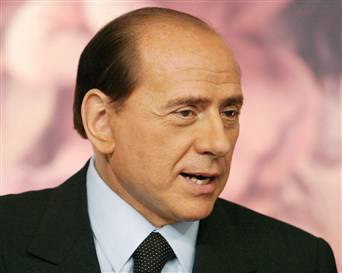Italy's centre-left opposition in chaos
 Rome - Lawyer David Mills is sentenced to prison for accepting a bribe offered by Italian Prime Minister Silvio Berlusconi, triggering a political crisis. Right?
Rome - Lawyer David Mills is sentenced to prison for accepting a bribe offered by Italian Prime Minister Silvio Berlusconi, triggering a political crisis. Right?
Wrong.
Instead, Tuesday's court ruling passed almost unnoticed compared to the storm that has engulfed Italy's main centre-left opposition Democratic party.
Walter Veltroni, once hailed by some as "Italy's Barack Obama," resigned as leader of the party on Tuesday after the party lost local elections in the island of Sardinia. His resignation, Italian columnists agreed on Wednesday, plunged the party into "chaos."
"I couldn't make it and I apologize for this," Veltroni said on Wednesday, explaining his decision to quit.
The Democratic party is now expected to appoint a caretaker leader ahead of a congress in October, calling into question the opposition's ability to play an effective role in Italy's parliament.
Italy's economy has slipped into recession over the last few months. Judging by a surge of arrivals by sea, the government appears to losing its battle against illegal immigration, a centrepiece of Berlusconi's programme.
On security, another of Berlusconi's avowed priorities, the government does not seem to be faring much better.
Newspapers and television news reports give the impression of a country struggling under a wave of rape cases, several allegedly perpetrated by Romanian immigrants.
Still, opinion polls suggest Berlusconi enjoys approval ratings of around 60 per cent.
His candidate's victory in Sardinia's regional election on Tuesday - the event that precipitated Veltroni's decision to quit - represents the second region the prime minister's conservatives have captured from the centre-left since their victory in April 2008's national elections.
"The paradox is that it's not the government, but its adversaries, who are being held responsible," political analyst Massimo Franco wrote in the Italian daily Corriere della Sera.
Veltroni's departure came 16 months after his triumphant election as leader of the new Democratic party following a primary vote in which some 3.3 million people cast ballots.
The former mayor of Rome, who wrote the preface to the Italian edition of Barack Obama's book, The Audacity of Hope, presented himself as a new force for change in Italian politics.
Stability in a political landscape notorious for its fragmentation into dozens of parties, Veltroni argued, could only be achieved through a US-style "bipolar" system - conservatives versus progressives.
And so Veltroni jettisoned former allies - smaller parties including unrepentant communists and ultra-environmentalists - and decided to run the Democratic party's election campaign on a solo ticket.
The gamble failed, and despite a respectable showing in the 2008 polls, in which the Democratic party won 33 per cent of the vote, Berlusconi won with a comfortable majority.
Since then, Berlusconi has used his clout in parliament to introduce new laws, including a controversial provision that gave the country's top officials immunity from prosecution.
Critics, led by the Democratic party's sole ally in the elections, anti-corruption magistrate Antonio Di Pietro, charged that Veltroni had been too soft on Berlusconi, and particularly on the new immunity law.
Di Pietro has been a vocal critic of the law, which Berlusconi's lawyers invoked to protect the prime minister in the Mills trial.
Proceedings against the prime minister have been frozen while the constitutional court examines the law.
Di Pietro, whose approval rating in opinion polls continues to rise, was not Veltroni's only critic. He was also hurt by dissent within the party.
Catholic and secular lawmakers within the party have clashed over such high-profile cases as that of Eluana Englaro, a comatose woman who died after doctors, acting on a court order, disconnected her life-support system.
The governing centre-right coalition stood united against the court ruling, saying it amounted to euthanasia, which is prohibited in Italy. Many Catholics in the Democratic party agreed. The country's main secular wing did not.
Again Berlusconi gave the impression of a leader commanding a loyal following, even if government efforts to prevent Englaro's death ultimately failed.
In contrast, Velroni's leadership increasingly resembled the indecisive style of previous centre-left governments, something Berlusconi has relentlessly emphasized, most recently in the Sardinia regional election campaign.
Italy's problems, Berlusconi insists, are a legacy of the wavering style that Veltroni came to represent. For now, Italian voters are persuaded. dpa